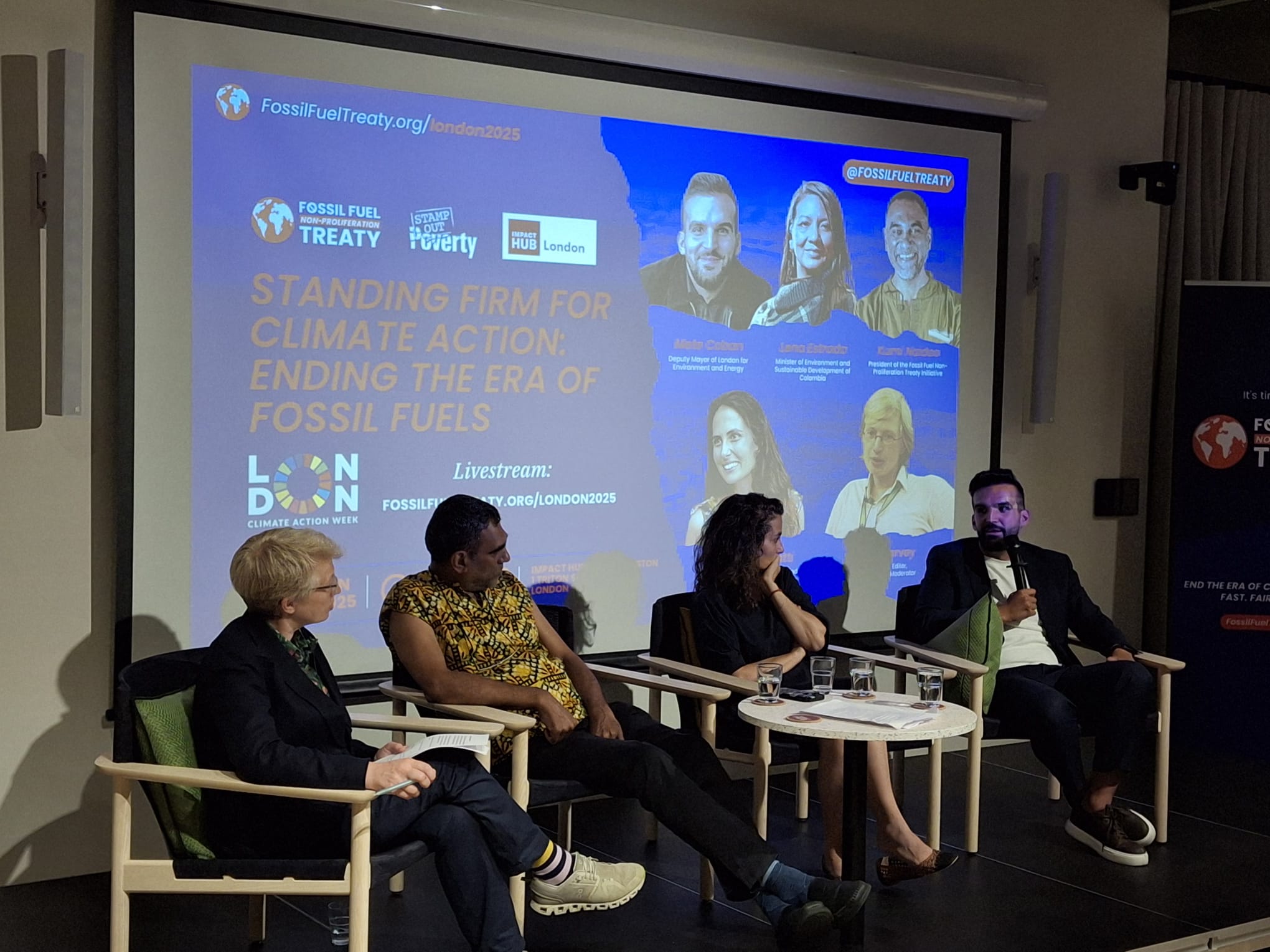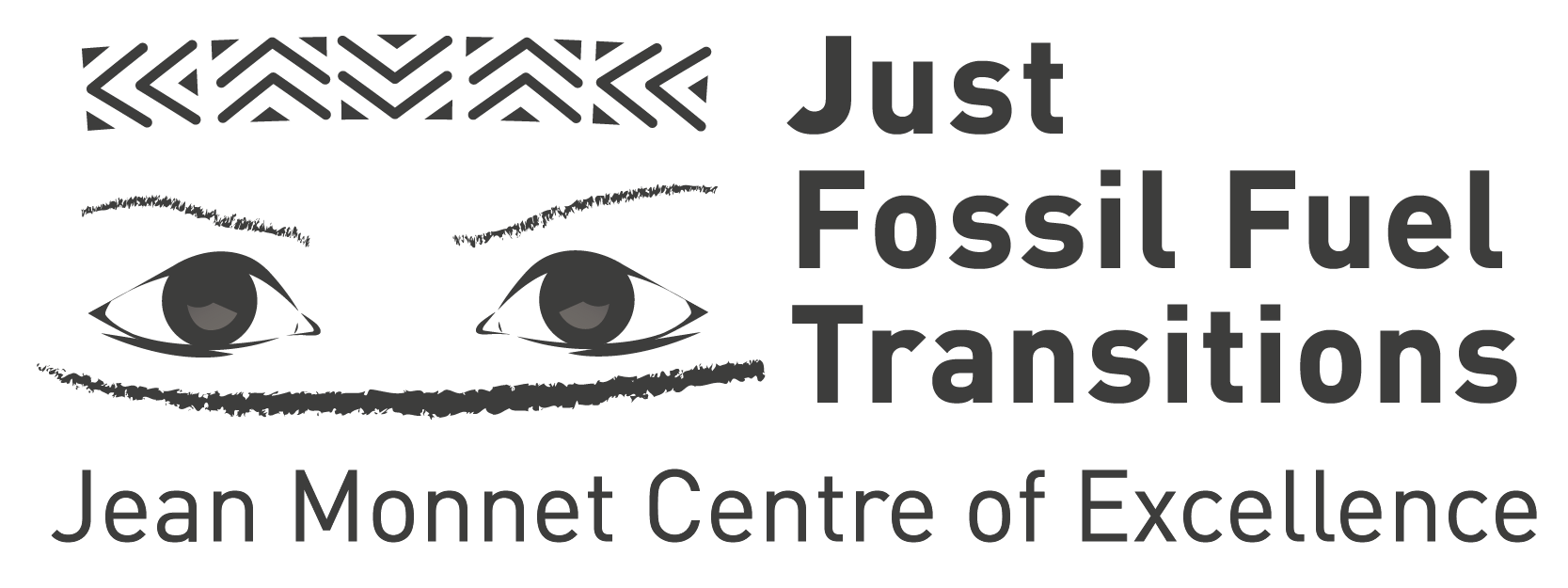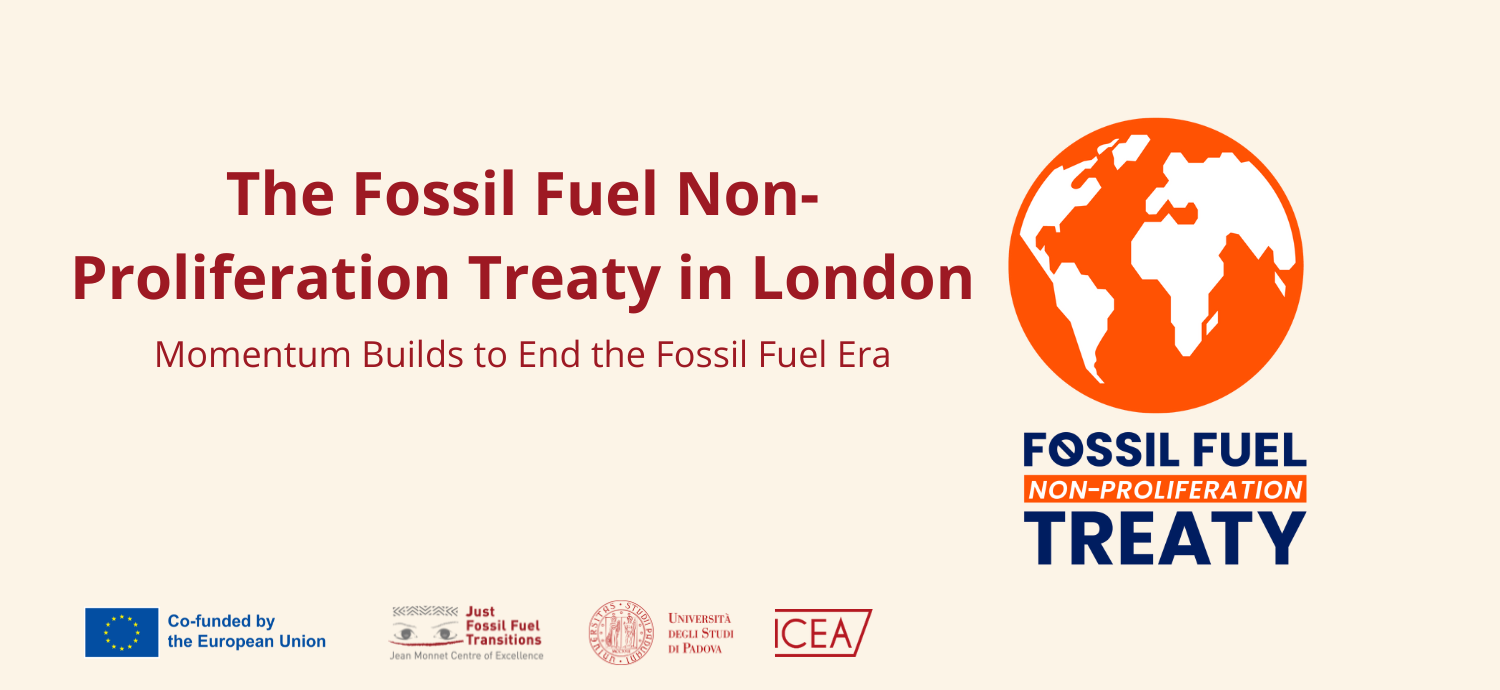London, June 2025 — As global temperatures soar past the critical 1.5°C threshold, the Fossil Fuel Non-Proliferation Treaty (FFNPT) initiative is intensifying its call for urgent action to dismantle the fossil fuel economy — and this year’s London Climate Action Week became a pivotal stage for bold leadership, coordinated strategy, and mounting international support.
Two key events, held on 26 and 27 June at which we, as Centre of Excellence Jean Monnet on Just Fossil Fuel Transition have participated, brought together global leaders, grassroots organizers, city officials, and civil society in a united front to demand an end to fossil fuel expansion and to shape a just transition powered by people, not profit.
Standing Firm for Climate Action: Ending the Era of Fossil Fuel (June 26)
The first event, hosted at Impact Hub London, convened a distinguished panel including Kumi Naidoo (President of the FF-NPT Initiative), Caterina Sarfatti (Managing Director for Inclusion and Global Leadership, C40 Cities), Mete Coban (London Deputy Mayor for Energy and Environment) and Fiona Harvey (Environment Editor for The Guardian) as moderator.
Naidoo opened with a vivid metaphor that set the tone for the evening: “If your bathtub is overflowing, do you reach for a bucket or turn off the tap?” The image powerfully illustrated the irrationality of current global climate strategies that continue to “bucket out” fossil-fueled emissions rather than “turning off the tap” by halting fossil fuel production at its source.
Naidoo warned that hard-won language on “transitioning away from fossil fuels” secured at COP28 in Dubai has nearly vanished from UN negotiations in Bonn ahead of COP30 in Belém. He condemned the growing influence of oil and gas lobbyists, who now make up the largest single delegation at climate summits, as a sign of institutional capture by the very interests accelerating planetary collapse. He presented the FFNPT as a vital, complementary tool to the UN process, modeled after successful frameworks like the nuclear Non-Proliferation Treaty, the Montreal Protocol, and the Land Mine Treaty. The initiative, now supported by 17 countries including Colombia and Pakistan, aims to be a binding agreement that unites governments committed to ending fossil fuel expansion and building a more democratic, equitable future.
Caterina Sarfatti of C40 Cities, echoed that urgency. Drawing from urban success stories, she outlined four essential lessons:
- Markets cannot deliver a just transition alone.
- Public policy must be backed by meaningful enforcement and citizen involvement.
- Top-down approaches often provoke backlash; equity and inclusion must be foundational.
- Coalition-building is critical to overcoming resistance. She cited Paris’s success in reducing car traffic as an example of mobilizing alliances against entrenched automotive interests.
Throughout the discussion, panelists highlighted the deep failures of the current multilateral system still dominated by colonial legacies and blind to the reality that over 80% of the world’s population lives in the Global South. Naidoo’s striking words resonated in the room: “Africa is the richest country underground, that’s why it’s the poorest aboveground.”
The event concluded with an urgent call to reject climate policy shaped by inequality and to focus on inclusive, skill-based transition programs from social perspective including the important issue of working class: “Only 30% of workers are ready for a just transition,” Sarfatti warned, “We need to rethink migration and training policies as part of climate justice.”
The event, “Standing Firm for Climate Action: Ending the Era of Fossil Fuel,” is available on Youtube: https://www.youtube.com/watch?v=UDD88nzEcpc&ab_channel=FossilFuelNon-ProliferationTreatyInitiative

UK Network Strategy Session: Ending the Era of Fossil Fuels (June 27)
The following morning, the momentum carried into a closed-door strategy session at Friends House, where UK-based activists, unions, local leaders, and international allies convened to map out the country’s role in advancing the Treaty.
Kumi Naidoo returned to provide strategic context, reiterating that COP processes are faltering, and reaffirming the FFNPT as a viable, structured alternative. He shared news of a landmark proposal by the Colombian government to host the first Global Conference on Fossil Fuel Phase-Out in early 2026 — a move poised to anchor the Treaty in the international agenda. He also revealed the next strategic goal: a core agreement among the signatory states to halt any new exploration or investment in fossil fuel projects — a decisive step toward binding commitments.
The session then split into working groups focused on three key fronts:
- Trade unions explored how to deepen labor engagement in the Treaty initiative.
- UK advocacy discussed pressure points for policymakers and synergies with global efforts like the Clean Power Alliance.
- Local government and city leadership considered how councils and mayors could amplify the Treaty’s principles at home, including through local fossil fuel ad bans and policy endorsements.
Participants reconvened for a plenary where facilitators summarized takeaways, and Naidoo closed the session by encouraging bold action rooted in solidarity and hope.
As the week concluded, the message from both events was clear: the fossil fuel era is not just environmentally unsustainable — it is morally indefensible. In a powerful new report, the UN Special Rapporteur on Human Rights and Climate Change called for the urgent “defossilization” of the global economy as the cornerstone of a just and transformative transition.
From London to Belém, from cities to entire nations, the movement is gaining strength. As Kumi Naidoo said, quoting the film Field of Dreams, “If you build it, they will come.” The Fossil Fuel Treaty is not a dream, it is a necessary, urgent architecture for survival. Now is the time to build it. Because the longer we wait to turn off the tap, the faster the flood rises. Ending the fossil fuel era is no longer a political choice, it is a moral obligation, and the world is watching.


